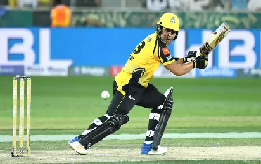The Pakistan Super League (PSL) is going on right now, and is certainly one of the most talked about leagues in the world. Players from all over the globe have come in to play the league being played in the country of Pakistan. However, Indian players are the only ones not participating in the league, and that is certainly a big dampener. Former Pakistan wicketkeeper Kamran Akmal has now explained why it is good that Indians do not play in the country’s premier T20 franchise league.
In an interaction on the YouTube channel ‘Nadir Ali Podcast’, Akmal said that Indians should not play in the PSL as the BCCI pays them enough, and this also does not hamper the workload management of these players.
“Indian players should not play in the PSL,” he said. “The Indian board is doing the right thing by not allowing their players to play in overseas T20 leagues. They are aware that the IPL goes on for two months, and then there is a lot of international cricket as well. Unko zaroorat nahi hai (They don’t have the need). The players are so strong financially that there is no need for them to go and play in other leagues,” Akmal retariated.
He also said that the Pakistan Cricket Board needs learn from the BCCI and adopt similar measures of not letting their players play in other domestic leagues across the world other than the IPL. “Our board can also learn from it as it can prolong the careers of players. They have 14 to 15 players who have played over a hundred Test matches, while we have just two or three such players. India value their cricket and their players. The IPL pays players a lot. The BBL is nothing in front of the IPL. No league in the world can match the IPL,” Kamran Akmal added.
Kamran Akmal recently retired from all forms of cricket, and was part of the IPL winning Rajasthan Royals in the inaugural edition in 2008.



